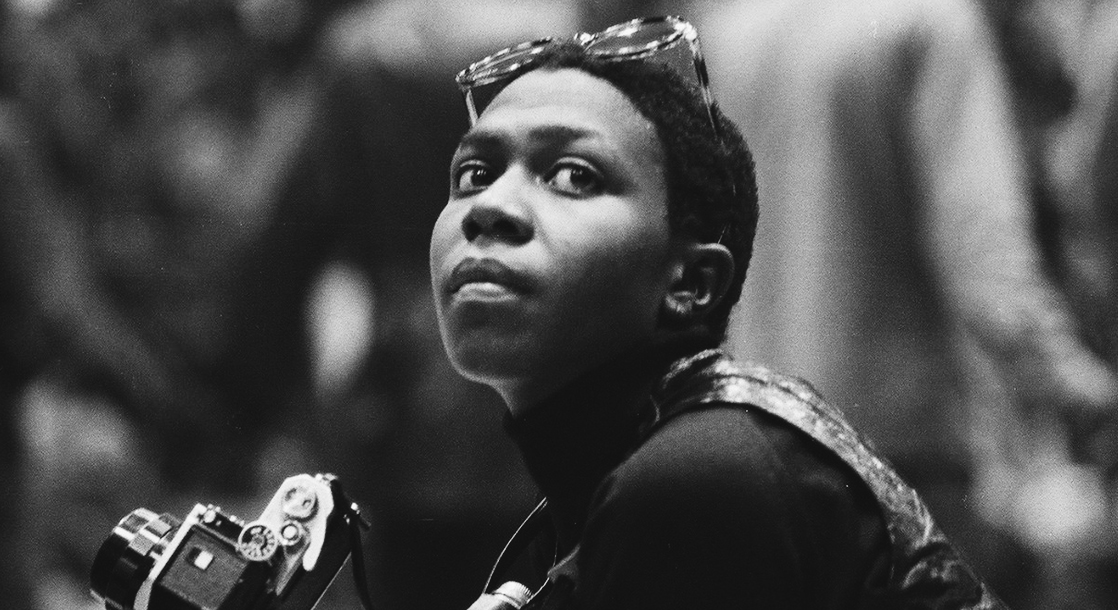2016 is an important year for the Shakur legacy. On June 16, what would have been Tupac’s 45th birthday, a trailer for All Eyez on Me, a biopic of his life was released.
Tupac's mother, Afeni Shakur, who passed away last month, served as an executive producer on the film.
Tupac once famously said, "My mama always used to tell me: 'If you can't find somethin' to live for, you best find somethin' to die for.'" Taking a look back at the life and times of the woman behind one of history's most iconic rappers, it's evident that Afeni Shakur practiced what she preached.
Afeni was laid to rest on May 28 in her hometown of Lumberton, North Carolina, where some of Tupac’s ashes were spread. The town also declared May 28 to be “Afeni Shakur” day.
As a child living in the south, Shakur witnessed the Lumbee Indians stave off the KKK when they attempted to force black residents to live under a ten o’clock curfew. According to scholars, this inspired Shakur to believe in the power of armed resistance.
With her husband in prison, Shakur became a leader of the Harlem Black Panther Party. In 1969, a pregnant Shakur was arrested along with other Black Panther members for conspiracy to bomb city landmarks.
Known as the "Harlem 21", Shakur was bailed out of jail to be a spokesperson, and during the trial she defended herself. When jurors were interviewed after the case, many credited Shakur’s strong defense as the reason for her acquittal.

One month later, Tupcac was born, named after the last Incan to die fighting spanish colonialists in Peru, Túpac Amaru.
Afeni Shakur began working on a program called the National Task Force for Cointelpro Litigation and Research, which tried to uncover and understand counterintelligence programs of the 1960s and 1970s.
“The activists that raided the FBI in Pennsylvania got thousands of documents,” John Potash, author of The FBI War On Tupac Shakur & Black Leaders and Drugs As Weapons Against Us, told MERRY JANE. “That’s the only way anyone ever found out about the FBI’s counter-intelligence programs.”
Shakur moved the family to Baltimore where she had cousins. Fourteen-year-old Tupca was enrolled in the Baltimore School for the Arts. She later moved the family to Oakland. Before Tupac became famous, Shakur was addicted to cocaine. In 1990, when someone told her of her son’s success, she didn’t believe it. In 1991, Shakur was able to shake her addiction and remained extermley close with her son until his murder in Las Vegas in 1996.
After her son's death, Shakur began working for the Tupac Amaru foundation, releasing Tupac’s unreleased recordings. Head of the Tupac estate, Shakur brought in over $1 million annually, much of which she funneled to charity.
In her later years, Afeni avoided overt politics. In 2005, she did back a bill by Cynthia Mckinney in U.S. congress to force the government to release government papers pertaining to her son. But, that bill didn’t pass. It was modeled after the Martin Luther King, Jr., Record Collections Act.
In 2014, Shakur co-produced the Tupac jukebox musical on Broadway, Holler If Ya Hear Me. For more than a decade Afeni Shakur was married to minister Gust Davis. However in 2016, TMZ reports Shakur she was in a legal battle over the family fortune as Davis sought half of Shakur’s $20,000 monthly income.
In her later years, Shakur lived on a farm where she grew organic vegetables, donating her harvest to the local school system. She became ill last month on her Sausalito, California houseboat, suffereing an apparent heart attack, police said. The official determination for cause of death was natural causes.
George Pryce, Afeni’s former publicist, told The New York Daily News Shakur reached out to him three days before her death.
"Afeni called me and told me she had something very important to tell me, and that if I couldn't come up to Sausalito in the next few days that she would come down to Los Angeles to see me,” according to Pryce. “I have no idea what she wanted to discuss with me."
He added: "…I will always wonder what was on her mind that week. May she rest in peace.” Tupac’s father showed his respect, also.
“It’s a sad day,” Billy Garland, Tupac’s biological father, told The New York Daily News. “Her contributions to this world will always be remembered. We weren’t really active in each other’s lives, but the pain is magnified when it’s the mother of your child.”
The New Jersey trucker lamented a 1997 denied inheritance claim: “We had a lot of legal issues that got blown out of proportion, and I regret that. It’s just a shock that she’s gone. I hope she’ll be at peace.”
Afeni’s estranged husband, Davis, claimed the body. According to the Marin County Sheriff, he was the legal next-of-kin for Afeni. Her daughter, Sekyiwa Shakur, 40, who lived on a nearby houseboat, will take over the family estate and foundation created in Tupac’s name.
And as 2016 marks the 50th anniversary of the Black Panther Party, a memorial is planned for Afeni at the celebration in October.
In celebration of the life of Tupac Shakur check out the trailer to the documentary All Eyez On Me, coming this fall.











